Campion’s multi-Oscar winner studies the thorns of speaking, silence, and desire through impeccable performances.
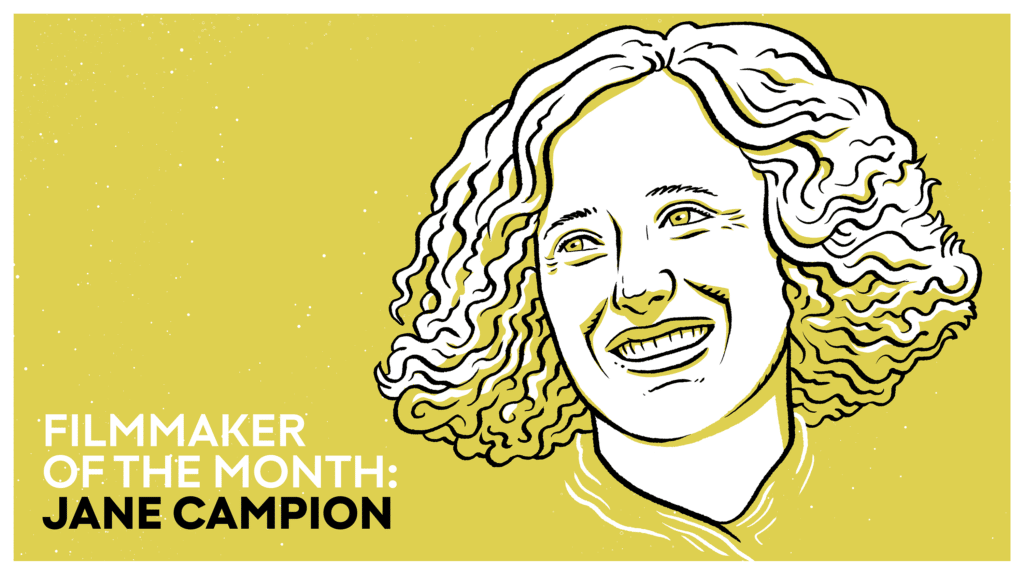
“The voice you hear is not my speaking voice,” Ada (Holly Hunter) explains in The Piano’s opening voiceover. It is her “mind’s voice” explaining that she has been mute since she was six and no one, not even she knows why. There is no medical explanation, so those around her think her silence grows from sheer will, that she is determined and refuses to bend. She can only communicate through sign language, which has to be translated by her daughter Flora (Anna Paquin), or through notes written on a small notepad she keeps around her neck. Yet, she doesn’t think of herself as silent; she has her piano. The music she has studied her entire life has become her form of communication, her way of making noise and announcing herself to the world around her. But, as soon as she lands in New Zealand and enters her new life as the bride of a farmer, she is separated from her piano–it is simply too large to carry from the beach to her new home with her husband. She arrives in her new world voiceless, deprived of her primary means of expression.
Depending on how you look at it, silence can be either a virtue or a weakness. To remain quiet, to not covet attention in an age that thrives on it, might seem admirable. Historically, this type of silence has been co-opted and leveled at people as a means of oppression. The implication is that those who are silent have nothing of value to say, rather than valuing what they say. Silence of this kind, the valuing of one type of speech over another, is less about what is said and more about who is heard. As Oprah famously asked Megan Markle, “Were you silent or silenced?” The central question is one of choice. Choosing to be quiet is different from being made so. When silence is used as a tool of oppression, enforced through law and fear, it stamps out the voices of those most in need of being heard. As Rebecca Solnit writes in The Mother of All Questions, a loss of voice is not always literal but extends to “the ability to speak up, to experience oneself and be experienced as a person with rights.”
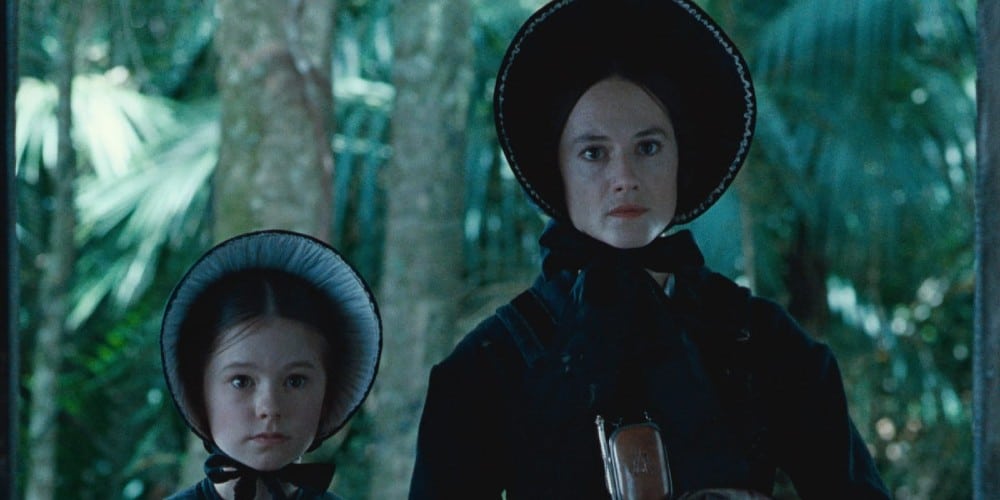
In The Piano, when to be silent and when to speak is central. Not long after Ada arrives, her husband, Alasdair (Sam Neill), trades her piano with Baines (Harvey Keitel), a retired sailor who lives nearby, for land. Ada fights this but is told she must make sacrifices. When Baines says he wants to learn how to play, Alasdair offers Ada as a teacher. Ada is bypassed repeatedly in these transactions. She, like her piano, is offered up as payment. Baines’s interest in the piano, however, is a ruse. He is attracted to Ada and, as such, offers a new deal. “There’s things I’d like to do while you play,” he tells her. If she makes frequent visits to his house, one visit per black key on the piano, and he is allowed to do as he desires while she plays, Ada can earn it back.
So begin their “lessons”; Ada plays, and Baines lies on the floor caressing her legs or working his finger into a small hole in her stockings. When his desire overcomes him, he asks for more. Five keys not to play, but just to lie next to him. Ten more keys to lie together without clothes on. Baines has words for his wants, whereas Ada is only able to hold up her hands or use her body to rebuke him. It is thanks to Holly Hunter’s Oscar-winning performance that we feel this anguish and get a more profound sense of Ada’s inner life as something that drives her. It is perhaps no accident that Ada’s appearance echoes the 19th-century American poet, Emily Dickinson, with her hair scraped back and simple black dress. Dickinson is famous for the inner life she maintained, one devoted to nature and sexuality, one she hid from the world. Instead, choosing to infuse it into her poems which she also kept secret.
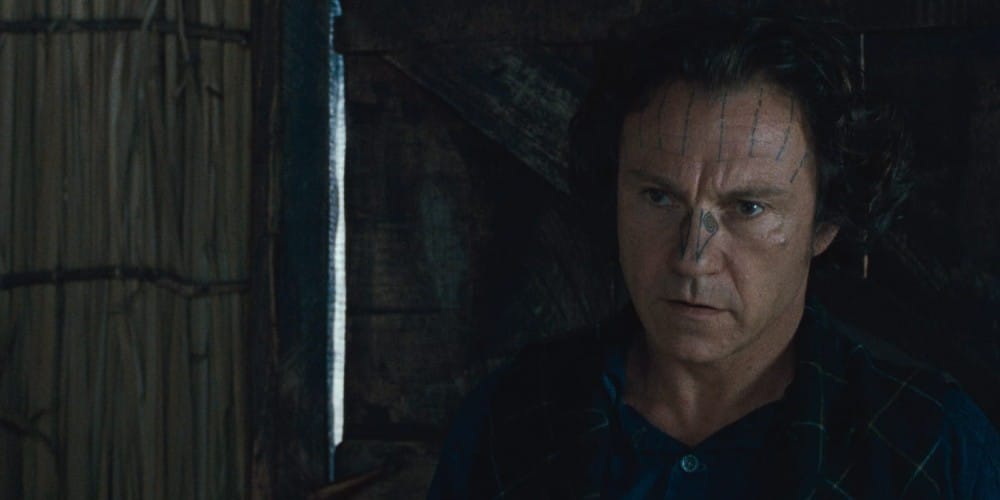
In an interview with Cinema Papers in 1993, Campion drew explicit parallels between Dickinson and Ada. “Dickinson led such a secret life,” Campion said, just like Ada, who “is secretive not because she closeted herself in a room,” like Dickinson did in her thirties and remained that way until her death aged fifty-five. Instead, Ada is secretive “but because she won’t speak.” The academic Cheri Davis Langdell took that idea further, likening Dickinson’s form of expression, poetry, to Ada’s mannerisms. “Just as Dickinson is the surgeon/artist eloquent in depicting pain, so Ada’s face is eloquent in its ability to reveal it mutely”. Ada’s wide eyes both watch and convey the depths of her feelings. Her body tightens and stomps, but she’s never able to give voice to her emotions, and her actions are easily ignored. The piano, then, becomes an extension of Ada as it too is passed around and traded. When Alasdair tries to force himself on Ada, only her daughter’s cries telling her that a group of indigenous people is playing her piano draws him off. (It is worth noting that, since the film was released in 1993, its depiction of the Maori people has been criticized as “colonial” and “inauthentic”.) Campion then cuts to a close-up of their fingers banging down on the keys; the piano is violated as she is.
“When do we ask women to speak, and why?” Katherine Angel, a writer and academic at Birkbeck University in London, asks in her book Tomorrow Sex Will Be Good Again. Angel finds that, in contemporary culture, women are asked to speak out on two main topics. The first is sexual violence–their trauma then feeds the culture’s appetite for outrage. The second is to know exactly what they want in advance of any sexual contact and they must be able to ask for it in no uncertain terms. In Ada’s case, she is, initially, uneasy with the arrangement Baines suggests, but she allows it to reclaim what has been stolen from her. It is only when Baines gives her back the piano, claiming what they have done has made her a “whore” and him “wretched” that she realizes she too felt desire. Ada is voiceless both literally and figuratively, but that doesn’t mean she has not made a choice. Her sexual encounters with Baines are not totally consensual if one considers a contemporary understanding of such things in which power is the driving factor. Yet, when Baines withdraws from her, Ada is drawn to him. What does it mean, then, to see Ada as a woman driven by the desire in the film’s final act?
Silence of this kind, the valuing of one type of speech over another, is less about what is said and more about who is heard.
Ada finds pleasure in a situation that looks, on the face of it, to be problematic. Yet, she plays a role in defining the parameters of their interactions. Frequently, she pushes back against Baines’s advances and draws lines on what she will or won’t do. When she can tell he is driven by desire, she asks for more keys in exchange for certain acts. It is not a situation she was willingly created, but as it progresses she begins to find gratification in it and when it is taken away from her, she misses it. As Dorothy Allison, an advocate for kinky sex and the complexity of desire writes “Most sexual imagery does not have one interpretation but a range of multilevel impacts depending on context, personal taste, and hidden symbolism.” Baines offers Ada the chance to play her piano, something Alasdair disregards when he trades it. In this new place, the only person to listen to her is Baines and he responds with acts of desire. Ada navigates these with a sense of obligation before she is freed from the transactional nature of their situation. However, once it’s over, Ada feels untethered and returns to Baines, instigating a sexual affair for the first time.
“All sexuality is responsive,” Angel writes. “All sexual desire emerges in a culture which in turn shapes it.” The braiding of desire and culture is tricky in that it often finds women accountable rather than the factors that shape desire itself. “Sexuality is lived,” Angel continues. It is ‘learnt, developed over time, in particular contexts”. The argument, Angel stresses, is nuanced. She believes we need to allow space for uncertainty in sexual encounters because, otherwise, the onus falls on women to know exactly what they want without the means to explore it. It “places the burden of good sexual interaction on women’s behavior – on what they want and on what they can know and say about their wants; on their ability to perform a confident sexual self to ensure that sex is mutually pleasurable and non-coercive.”
To explain, it is worth considering the work of another of Campion’s subjects, John Keats, whose life and relationships are dramatized in the 2009 film Bright Star. In an 1817 letter sent to a friend, Keats outlined what he called “negative capability” when discussing the works of Shakespeare. As he defined it, negative capability exists “when man is capable of being in uncertainties, Mysteries, doubts, without any irritable reaching after fact & reason.” Throughout history, versions of this idea have been attached to the definition of intelligence. For example, in an essay published in 1936, the author F. Scott Fitzgerald suggested “the test of a first-rate intelligence is the ability to hold two opposed ideas in the mind at the same time, and still retain the ability to function.” When watching The Piano, Campion asks a viewer to attempt this, to hold two complex and, at times, opposing views together. She suggests desire has been shaped by a culture that sees women as sexual objects and little else, but that doesn’t always mean this desire is inherently wrong or that it should be unilaterally condemned.
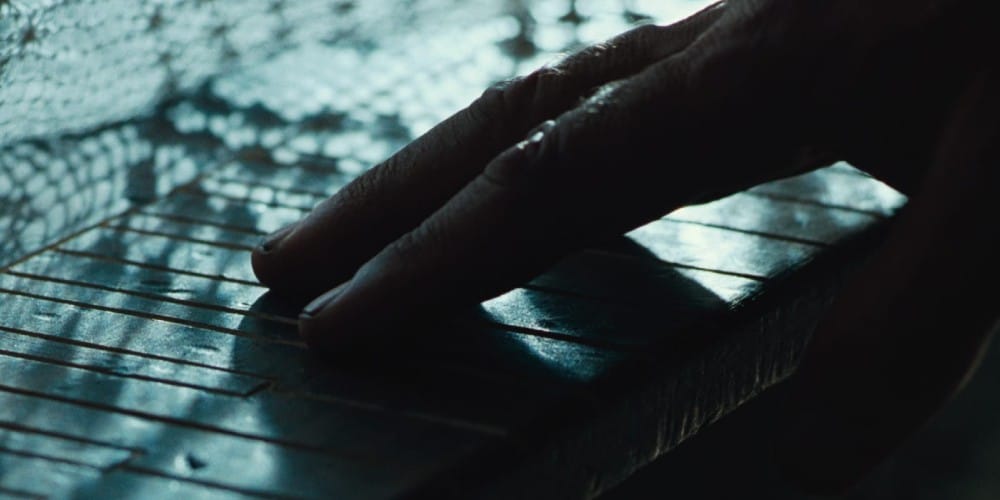
Ada’s daughter, Flora, is the most vocal in her dislike of her mother’s actions. Unlike Ada, Flora can speak, but when she does, she lies. She tells the servants her mother was “struck dumb” after her father died when lightning struck him in the woods. She makes up stories because she does not know the truth and desires both a sense of history and control. Flora uses her voice to pass along falsehoods and, later, to reveal Ada’s arrangement with Baines to Alasdair. This is a stark change from the film’s beginning when she tells her mother she will not call Alasdair father. Yet, the more time Flora spends within the culture that silences her mother, the angrier she becomes. But, that anger is not directed at the broader patriarchal system, nor at those who embody it, but, instead, at her mother, who she insists is going to hell.
Flora’s betrayal emphasizes the power of the patriarchal structure she exists in, in that she chooses to enforce the moral standards of men over female solidarity. When Alasdair tells her off for playing with the native children, she seeks to make amends by first suggesting that the piano lessons Ada is giving Baines are not what they appear. Then, later, when her mother asks her to deliver a note to Baines, Flora takes it to Alasdair instead, setting in motion the events that lead to the film’s violent climax.
By the film’s end, Ada is on a boat to Nelson with Baines and Flora. Her piano, partially smashed up by Alasdair in a rage, is with her too, but she realizes she doesn’t want it. The piano is a link to her old life, to her voicelessness and lack of power. She demands they throw it overboard. As it does, she deliberately gets tangled in its ropes and is pulled into the ocean, too. Once again, Ada and her piano are indistinguishable from each other, their connection made literal by a rope wrapped around her ankle. Pulled down deeper and deeper, a calmness crosses her face as she accepts her fate. It is interesting to note that this was how Campion initially imagined the film would end, with Ada making the ultimate choice and drowning. “It would be more real, wouldn’t it, it would be better?” she told the Radio Times in 2013. “I didn’t have the nerve at the time. What if Ada just went down, she went down with her piano – that’s it.”
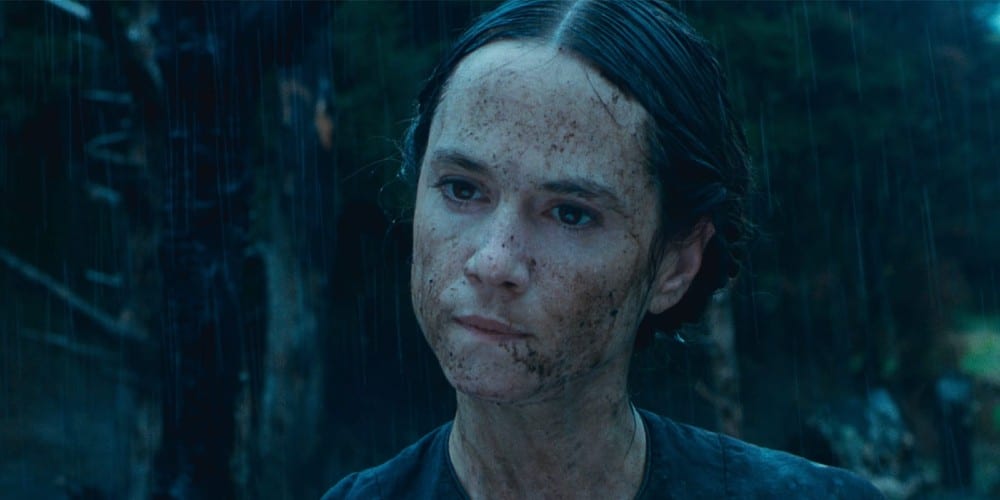
After she untangles herself from the piano, Ada swims back to the surface and, upon remerging, takes a massive gulp of air, but there is a more symbolic death at play. In her opening monologue, Ada tells us that her father would often say, “the day [she] would take it into her head to stop breathing would be [her] last.” Instead, Ada chooses life and, in doing so, she learns to speak.
In Nelson with Baines and Flora, Ada has a new piano and is slowly regaining her voice. At night, she thinks of her piano at the bottom of the sea and imagines herself floating silently with it. “It is a weird lullaby,” she tells us in her closing monologue, but one that signifies a divide in Ada, between the silenced woman represented by the hovering corpse of her dreams, and the woman who is finding her voice. The old self and all its trappings have been condemned to an ocean grave, but with her new resolution, her iron will, she is creating a new self in a life she has chosen. Ada has left her silence behind. The film closes, then, with lines from a sonnet by Thomas Hood recounted over the image of her body floating above the piano at the bottom of the ocean:
There is a silence where hath been no sound,
There is a silence where no sound should be.
In the cold crave, under the deep deep sea.